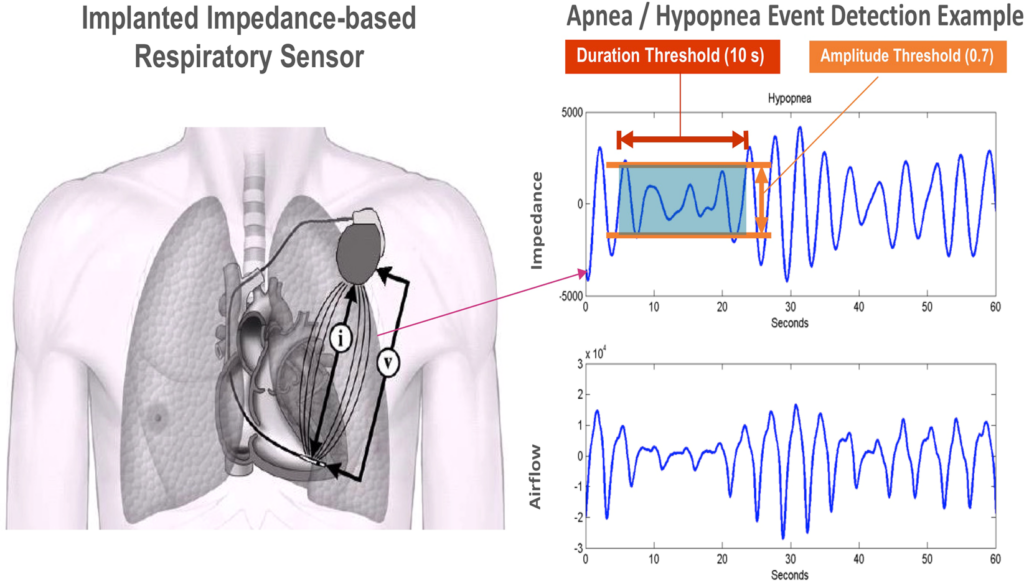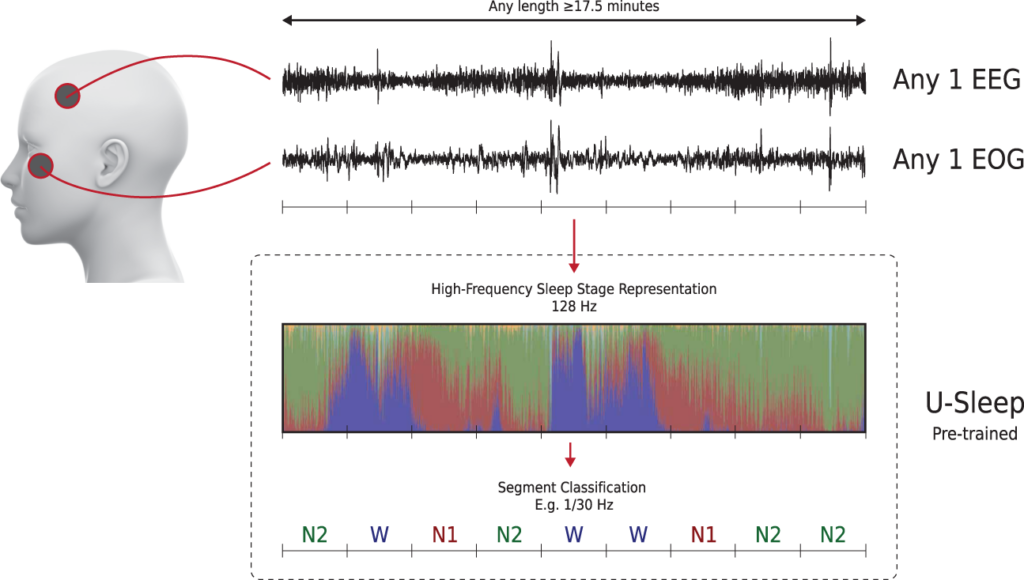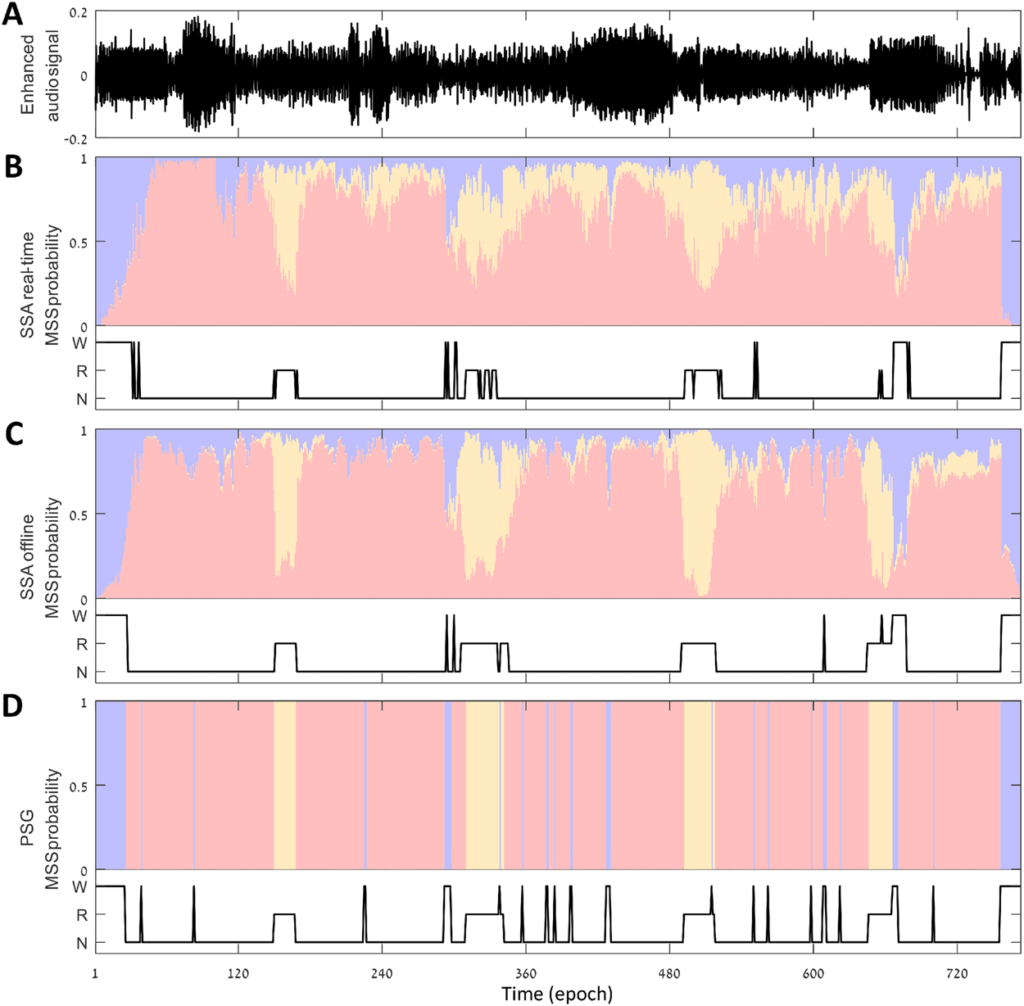Sleep studies are an essential tool in the field of sleep medicine. They provide valuable insights into a person’s sleep patterns and help diagnose various sleep disorders. In this article, we will explore the importance of sleep studies, the process involved, the types of sleep disorders they identify, and how sleep study results are interpreted by sleep specialists.
The Importance of Sleep Studies
Understanding the importance of sleep studies is crucial for anyone experiencing sleep-related issues. Sleep studies, also known as polysomnography, involve monitoring a person’s sleep stages, breathing patterns, heart rate, and brain activity while they sleep. These tests are performed in controlled sleep laboratory settings by trained sleep technologists and monitored by sleep specialists. By analyzing the data collected during the study, healthcare professionals can gain information about a person’s sleep quality and identify any underlying sleep disorders.
Interpreting sleep study results is a complex task that requires expertise and experience in sleep medicine. Sleep studies, also known as polysomnography, involve monitoring various physiological parameters during sleep to evaluate sleep patterns and identify potential sleep disorders.
Defining Sleep Studies
Sleep studies, also referred to as polysomnography, encompass a range of tests that monitor a person’s physiological activity during sleep. These tests typically involve the use of various sensors and electrodes attached to the person’s body to record their brain waves, eye movements, muscle activity, heart rate, and oxygen levels. The information collected provides valuable insights into the different stages of sleep and can help identify any abnormalities or disruptions.

Why Are Sleep Studies Conducted?
Sleep studies are conducted for various reasons. One common reason is to evaluate and diagnose sleep disorders such as sleep apnea, insomnia, narcolepsy, restless leg syndrome, and many others. By performing a sleep study, healthcare professionals can accurately diagnose the specific sleep disorder affecting an individual, leading to appropriate treatment. Sleep studies are also conducted to monitor the effectiveness of treatment or interventions that have been prescribed to manage sleep-related conditions.
Furthermore, sleep studies can provide valuable information about the impact of sleep disorders on a person’s overall health. For example, sleep apnea, a common sleep disorder characterized by pauses in breathing during sleep, has been linked to an increased risk of cardiovascular problems, including high blood pressure, heart disease, and stroke. By conducting sleep studies, healthcare professionals can not only diagnose sleep disorders but also assess their potential impact on an individual’s long-term health. Learn more about high blood pressure visit at https://www.nhlbi.nih.gov/health/high-blood-pressure.
Moreover, sleep studies can also shed light on the relationship between sleep and mental health. Research has shown that sleep disturbances, such as insomnia or sleep deprivation, can contribute to the development or exacerbation of mental health conditions, including anxiety and depression. By conducting sleep studies, healthcare professionals can identify any sleep-related factors that may be contributing to an individual’s mental health issues, allowing for a more comprehensive treatment approach.
The Process of a Sleep Study
Understanding the process involved in a sleep study is essential to alleviate any concerns or uncertainties before undergoing the assessment.
A sleep study, also known as a polysomnography, is a comprehensive test used to diagnose sleep disorders. It involves monitoring various aspects of your body while you sleep, such as brain waves, heart rate, eye movements, muscle activity, and breathing patterns. By analyzing these data, sleep specialists can identify issues like sleep apnea, insomnia, narcolepsy, and restless legs syndrome. Learn more about brain waves click here.
Preparing for a Sleep Study
Prior to a sleep study, there are typically some preparations that need to be made. It is important to follow any specific instructions provided by the sleep center, such as avoiding caffeine or medications that may interfere with sleep. Additionally, it is recommended to bring comfortable sleepwear, toiletries, and any personal items that will help create a familiar sleeping environment.
It’s also advisable to maintain your usual bedtime routine to ensure a more accurate representation of your typical sleep patterns. This may involve refraining from napping during the day and avoiding stimulants close to bedtime. Creating a calm and relaxing pre-sleep atmosphere can contribute to a better night’s rest during the study.
What Happens During a Sleep Study?
During a sleep study, you will be asked to arrive at the sleep center in the evening, where the sleep technologist will guide you through the process. Electrodes and sensors will be applied to specific areas of your body, including your scalp, face, chest, and legs. These are painless and non-invasive, and they simply record your body’s activity during sleep. Once you are comfortably settled in bed, the recording equipment will start, and you will be observed throughout the night. If any significant events occur during your sleep, such as sleep apnea episodes or leg movements, they will be documented for further analysis. Learn more about about Sleep Study Gold Coast: Analysing Sleep Patterns on the Gold Coast click at https://coal-seam-gas.com/sleep-study-gold-coast-analysing-sleep-patterns-on-the-gold-coast/.
The sleep technologist will be monitoring your sleep remotely and will be available to assist you if needed. It’s common for individuals to feel a bit anxious or uncomfortable sleeping in an unfamiliar environment with monitoring equipment, but rest assured that the technologist is there to ensure your safety and comfort throughout the night.

Types of Sleep Disorders Identified in Sleep Studies
Sleep studies are valuable in identifying and diagnosing various sleep disorders that can significantly impact an individual’s well-being.
Understanding the intricacies of sleep disorders is crucial for effective treatment and management. Sleep specialists utilize a range of techniques during sleep studies to delve deep into the complexities of each disorder, providing a comprehensive analysis of the individual’s sleep patterns and behaviors.
Insomnia and Sleep Studies
Insomnia, characterized by difficulty falling or staying asleep, can be evaluated through sleep studies. By monitoring sleep stages and brain activity, sleep specialists can determine the underlying causes of insomnia and develop appropriate treatment plans.
Insomnia is a multifaceted disorder that can be influenced by various factors such as stress, lifestyle choices, and underlying medical conditions. Through detailed observation and analysis in sleep studies, healthcare professionals can pinpoint the specific triggers that contribute to an individual’s insomnia, paving the way for personalized and effective interventions.
Sleep Apnea and Sleep Studies
Sleep apnea, a condition where breathing repeatedly stops and starts during sleep, is another sleep disorder that can be identified through sleep studies. Respiratory parameters such as airflow, oxygen levels, and respiratory effort can be monitored to diagnose the severity of sleep apnea and guide treatment decisions.
Obstructive sleep apnea, the most common form of this disorder, poses serious health risks if left untreated. By utilizing advanced monitoring equipment and techniques in sleep studies, healthcare providers can not only diagnose the presence of sleep apnea but also assess its impact on the individual’s overall health and well-being. This comprehensive approach allows for tailored treatment plans that address the specific needs and challenges associated with sleep apnea.
Interpreting Sleep Study Results
During a sleep study, data is collected on a range of factors including brain waves, eye movements, muscle activity, heart rate, and breathing patterns. This comprehensive data allows sleep specialists to assess the quality of sleep, detect any abnormalities, and tailor treatment plans to improve sleep health.
Understanding Sleep Study Scores
Sleep study results are often presented in the form of scores or indices that quantify different aspects of sleep quality. These scores provide insights into sleep efficiency, duration of various sleep stages, and the presence of any abnormalities. Sleep specialists use these scores as part of their assessment when diagnosing and treating sleep disorders.
One common score derived from sleep studies is the Apnea-Hypopnea Index (AHI), which measures the frequency of pauses in breathing during sleep. Another important score is the Sleep Efficiency percentage, which indicates the amount of time spent asleep compared to the total time spent in bed. These scores, along with others, help paint a detailed picture of an individual’s sleep patterns and aid in the interpretation of sleep study results.
What Do Abnormal Sleep Study Results Mean?
Abnormal sleep study results indicate the presence of sleep disorders or disturbances that may be impacting a person’s sleep quality. These abnormalities can range from an insufficient amount of deep sleep to frequent interruptions in breathing patterns. Sleep specialists carefully analyze and interpret these abnormal results to make informed decisions regarding appropriate treatment strategies.
For example, the presence of a high AHI score may suggest the presence of sleep apnea, a common disorder characterized by breathing pauses during sleep. In contrast, a low percentage of REM (rapid eye movement) sleep could indicate potential issues with sleep quality and overall restorative sleep. By understanding and interpreting these abnormal results, healthcare providers can recommend interventions such as continuous positive airway pressure (CPAP) therapy for sleep apnea or behavioral changes to improve sleep hygiene.
The Role of Sleep Specialists
Sleep specialists play a crucial role in assessing sleep study results and providing appropriate care for individuals with sleep disorders.
When it comes to getting a good night’s sleep, sometimes we all need a little help. That’s where sleep specialists come in. These highly trained professionals have dedicated their careers to understanding the complexities of sleep and helping individuals overcome sleep-related problems that significantly affect their daily lives.
When to Consult a Sleep Specialist
Consulting a sleep specialist is recommended for individuals experiencing persistent sleep-related problems that significantly affect their daily lives. Sleep specialists are trained to assess sleep study results, diagnose sleep disorders, and develop personalized treatment plans to improve sleep quality and overall well-being.
So, when should you consider consulting a sleep specialist? If you find yourself tossing and turning night after night, struggling to fall asleep or stay asleep, or waking up feeling exhausted despite getting what should be a full night’s rest, it may be time to seek professional help. Sleep specialists have the knowledge and expertise to identify the root cause of your sleep troubles and develop a tailored treatment plan to address your specific needs.
How Sleep Specialists Use Sleep Study Results
Sleep study results are a valuable tool for sleep specialists when diagnosing and treating sleep disorders. By thoroughly analyzing the data collected during a sleep study, sleep specialists can identify specific sleep disorders and tailor treatment plans accordingly. These treatment plans may include lifestyle changes, medication, or the use of devices such as continuous positive airway pressure (CPAP) machines.
During a sleep study, you’ll spend a night in a sleep lab, where various sensors and monitors will be used to record your brain waves, heart rate, breathing patterns, and other important sleep-related data. This comprehensive evaluation allows sleep specialists to gain a deeper understanding of your sleep patterns and identify any abnormalities or disruptions that may be contributing to your sleep problems.
Once the sleep study results are in, sleep specialists will meticulously analyze the data, looking for patterns or indicators of specific sleep disorders. Armed with this information, they can then develop a personalized treatment plan that may involve a combination of therapies, lifestyle modifications, and, if necessary, the use of specialized sleep equipment.
By working closely with sleep specialists and following their expert guidance, individuals can regain control over their sleep health and experience the restful nights they deserve. Sleep specialists are dedicated to helping you achieve optimal sleep quality and overall well-being, so don’t hesitate to reach out if you’re struggling with sleep-related issues.

